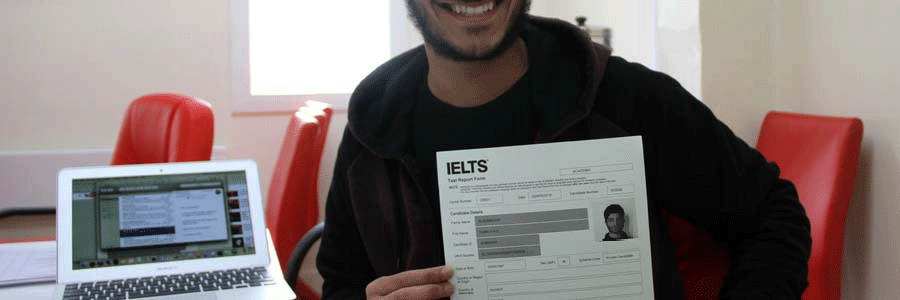5 tips to ace the IELTS
Taking the International English Language Testings System (IELTS) test? Whether it is IELTS Academic or General Training, it requires some preparation. Not that it’s extremely hard. The test can take time and be tedious because it measures four areas of language proficiency – reading, writing, listening, and speaking. But don’t worry, there are many resources available that can help you get ready to tackle the test and achieve the score that you need. Here are a few tips to get you started:
-
Prepare even if you are a native English speaker
Overconfidence can be the downfall of test-takers. Yes, you may be good at English, but when was the last time you measured your vocabulary or displayed your language proficiency under time pressure? Also, for some people, nerves can get in the way of performing well in the test. So if you’re taking the exam, give yourself time to prepare.
For starters, you might want to learn about the experiences of those who have taken the test. It’s a great way to know what to concentrate on in your preparation, learn from their successes and mistakes, and get some study and answering tips and links to resources. There are so many IELTS forums online. You can try: IELTS Preppers on Facebook, IELTS Blog, or the IELTS forum on CanadaVisa.
-
Understand the IETS Test format
The IELTS is split into four sections – reading, writing, listening and speaking. It takes a little under three hours to complete. Know how much time is given for each section and how you will be scored. Go to this page to see a detailed description for each section: Test Format.
Knowing what to expect will help you get more comfortable and less nervous. More importantly, it will also help you maximize your time. This way you’ll be able to answer the exam completely and minimize your chances of getting a low score.
5 Common mistakes made by IELTS test takers from IELTS IDP Education. -
Give yourself enough time to study
The amount of time you will need to study will depend on your proficiency. Make a realistic estimate of your available time if you’re a full-time student or worker. Choose the best method for studying. This will depend on your learning style and needs. Don’t rush through your review or study only on the day before the exam. It’s a surefire way of fraying your nerves.
If you have the time and money, enroll in a review class. If you’re busy, tools like mobile apps can help you study anywhere and anytime. Download some audio tools and listen to them while traveling to work or on the job. If you don’t want to spend a lot, take advantage of free resources online. Using these will take organization and discipline but it will be well worth the effort. Read Top free online review resources for IELTS. We’ve compiled great resources that you can use.
-
Prioritize on your weakest spots
Focus on areas that you usually have trouble with – is it grammar? vocabulary? spelling? following instructions? If you are in a review class, ask your teacher for more materials to improve that specific weakness. Do more practice exercises or practice tests on that language area. Ask for feedback from a friend or a teacher about your progress. This will help you pinpoint areas where you need to improve on more.
-
Practise!
Do practice or mock tests. First, it will help you become more familiar with the test. You’ll know what type of questions that will be asked and how much time is given per question. Second, it will help you develop an answering technique. For example, given the limited time, you may decide to leave harder questions for later and answer easier ones first
If writing is hard for you, practise note-taking, essay-writing and spelling. Use online resources like Merriam-Webster to boost your vocabulary and spelling. If you’re nervous about the speaking test, watch speaking test interview samples on YouTube and practice answering similar questions yourself.
The best way to develop your English proficiency is to surround yourself with English every day. Take every opportunity to converse in the language. Read books, magazines and newspapers. Watch movies or TV programs. Listen to conversations and songs. This will help you become used to the flow of the language and be able to think in English.
On the test day
A common tip from those who have successfully taken IELTS is to be relaxed on the test day. It will help to know the test centre’s location ahead of time so there’s no chance of getting lost and being late. Have all your things (documents, IDs, etc.) ready the night before. Get a good night’s sleep. Wake up early and have a good breakfast. Leave early to ensure that you won’t be late. Make yourself comfortable in the testing room. Most especially, be confident! Don’t worry; you’ll do great!
Article updated January 8, 2021.
Sources: IELTS. British Council.org; and YouTube IELTS videos. Retrieved September 12, 2018.
Community Resources
If you have already taken IELTS General, CELPIP-General or TEF you can use conversion tools to know your equivalent CLB score. Go to the MPNP Language Proficiency page and use the CLB Calculator. If you want to see the CLB level conversion to IELTS General, go to this page: IELTS and CLB.

